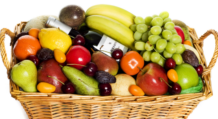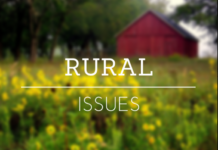Sunflowers are usually ready to be harvested beginning in mid-September and into October. Seed heads can ripen on the plant, but they will need protection from birds. Try covering the heads with a paper sack or cheesecloth once the petals start turning brown. Use a twist tie or rubber band to secure the covering. This will not only help keep birds out but will prevent ripened seeds from dropping out of the head. Check for maturity by looking for the following signs:
– Florets in the brown center of the flower disk should be shriveled.
– Heads should have turned down.
– The backside of the head should be lemon yellow.
The ultimate check, of course, is to pull a few seeds to see if they have turned black with white stripes, the typical color. Empty shells usually indicate a lack of pollination earlier in the year. If heads are to remain uncovered, harvest when a few seeds start turning black and white. The flavor will not be good as when seeds are allowed to ripen on the plants, but fewer seeds will be lost.
Cut the heads and place in a paper sack. Some people prefer to cut the heads with about a foot of stem attached and hang them upside down in a dry, well-ventilated area. A paper bag or cheesecloth can be placed over the heads to prevent seeds from dropping as they dry. Seeds can be easily removed from dry heads by rubbing gently.
Roasting Seeds
Raw, mature seeds may be prepared at home by covering unshelled seeds with salted water (2quarts of water to 1/4 to 2 cup salt). Bring to a boil and simmer 2 hours, or soak in the salt solution overnight. Drain and dry on absorbent paper.
Put sunflower seeds in a shallow pan in a 300-degree F oven for 30 to 40 minutes or until golden brown, stirring occasionally. Take seeds out of the oven and add 1 teaspoon of melted butter or margarine, or cooking oil per 1 cup of seeds if they are to be eaten immediately. Stir to coat. Put on an absorbent towel. Salt to taste. (Ward Upham)
Photo credit: David Swart **




